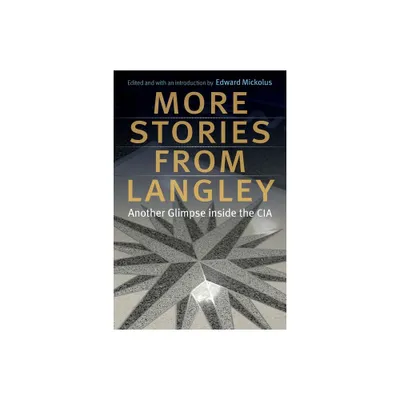Home
Is It Good for the Jews?: More Stories from Old Country and New
Loading Inventory...
Barnes and Noble
Is It Good for the Jews?: More Stories from Old Country and New
Current price: $22.00


Barnes and Noble
Is It Good for the Jews?: More Stories from Old Country and New
Current price: $22.00
Loading Inventory...
Size: Hardcover
*Product Information may vary - to confirm product availability, pricing, and additional information please contact Barnes and Noble
“Jewish stories,” writes Adam Biro, “resemble every people’s stories.” Yet at the same time there is no better way to understand the soul, history, millennial suffering, or, crucially, the
joys
of the Jewish people than through such tales—“There’s nothing,” writes Biro, “more revelatory of the Jewish being.”
With
Is It Good for the Jews?
Biro offers a sequel to his acclaimed collection of stories
Two Jews on a Train
. Through twenty-nine tales—some new, some old, but all finely wrought and rich in humor—Biro spins stories of characters coping with the vicissitudes and reverses of daily life, while simultaneously painting a poignant portrait of a world of unassimilated Jewish life that has largely been lost to the years. From rabbis competing to see who is the most humble, to the father who uses suicide threats to pressure his children into visiting, to three men berated by the Almighty himself for playing poker, Biro populates his stories with memorable characters and absurd—yet familiar—situations, all related with a dry wit and spry prose style redolent of the long tradition of Jewish storytelling.
A collection simultaneously of foibles and fables, adversity and affection,
reminds us that if in the beginning was the word, then we can surely be forgiven for expecting a punch line to follow one of these days.
joys
of the Jewish people than through such tales—“There’s nothing,” writes Biro, “more revelatory of the Jewish being.”
With
Is It Good for the Jews?
Biro offers a sequel to his acclaimed collection of stories
Two Jews on a Train
. Through twenty-nine tales—some new, some old, but all finely wrought and rich in humor—Biro spins stories of characters coping with the vicissitudes and reverses of daily life, while simultaneously painting a poignant portrait of a world of unassimilated Jewish life that has largely been lost to the years. From rabbis competing to see who is the most humble, to the father who uses suicide threats to pressure his children into visiting, to three men berated by the Almighty himself for playing poker, Biro populates his stories with memorable characters and absurd—yet familiar—situations, all related with a dry wit and spry prose style redolent of the long tradition of Jewish storytelling.
A collection simultaneously of foibles and fables, adversity and affection,
reminds us that if in the beginning was the word, then we can surely be forgiven for expecting a punch line to follow one of these days.


















